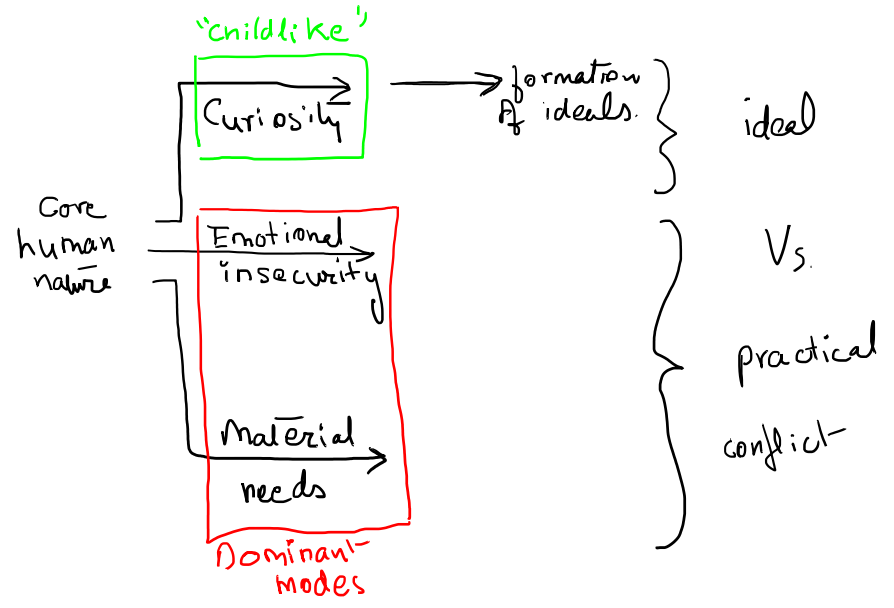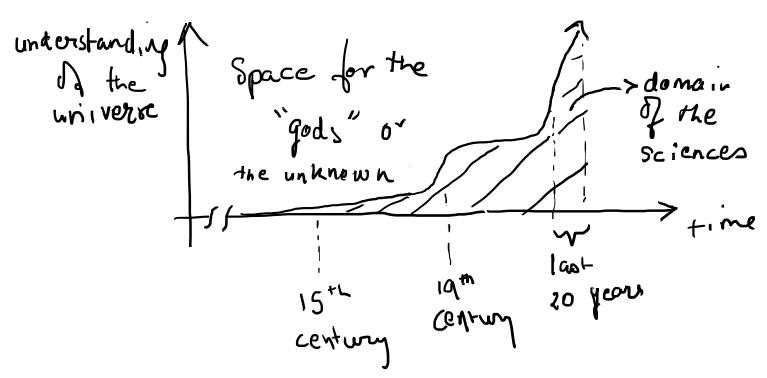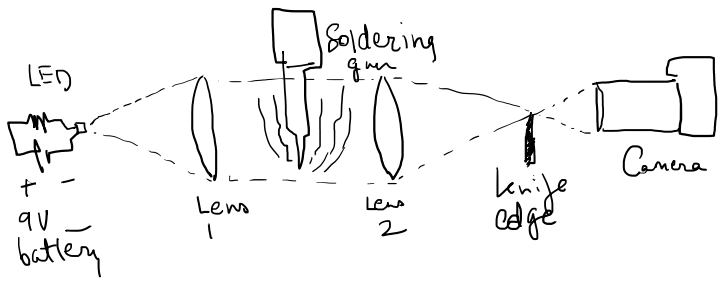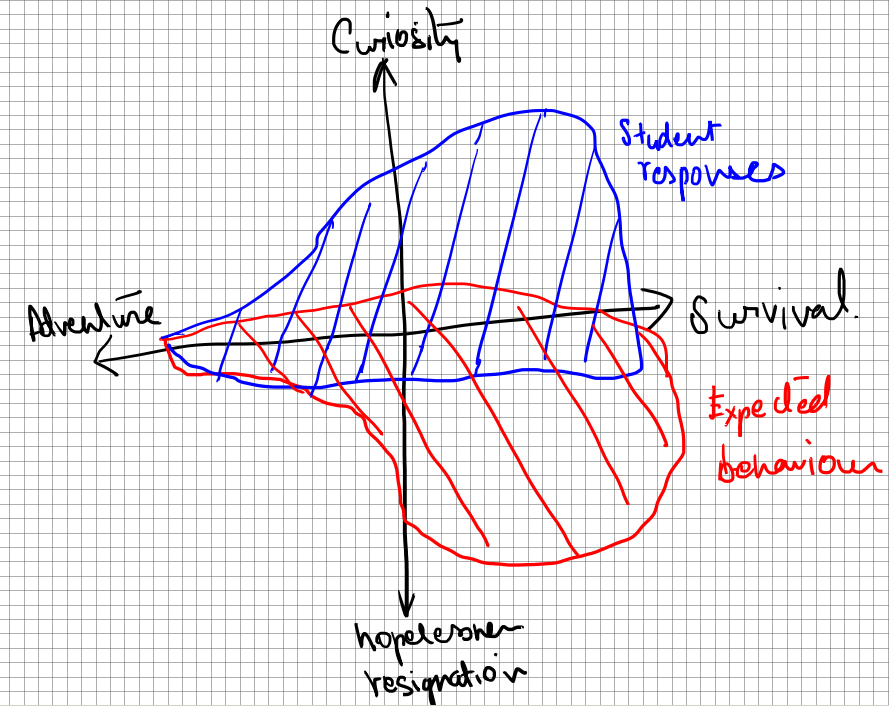General Q: Why so many sessions for this ‘simple’ topic? Lost all momentum on this one. After many goof-ups, long confusing and inconclusive sessions, finally, this session to complete this topic. Main learning from all this being – Even if the topic requires much deeper analysis and insight, given the limited knowledge and depth of thought of the instructor, only tangible deliverables must be doled out in the class. There is no need to transfer the obvious confusion in the instructor’s mind, no matter how important and valid he feels about it, to the students.
Ideal start of this topic
Lets begin by a posing ourselves a fundamental question :- Why are we interested in knowing about the ancient Indian sciences? There could be many answers. Due to severe paucity of information and organization on one hand and nationalistic or traditional attachments (identity, etc) on the other, the interpretation of such a contentious subject will be victim to the biases of all participating members, i guess. What is required is a review of ‘unattached’ studies of history. But that cant be acquired as a preparation for this basic class, especially given the instructor’s limitation. Yet one can list the different needs the stake holders (students and instructor) can look towards this question from, hoping that this awareness may also hint at the innate fallibility of our natures. Here are some:
- I am curious as to why i can’t call my ancestors as intelligent as compared to the Europeans who claim obvious dominance in this territory.
- I would like to prove that we (identity issue) were not even a bit less capable or active in the sciences.
- I am amazed how little we know about our past, what more could be discovered.
- I wonder what could have lead to one population embracing scientific thought while the other didn’t?
- I would like to see what enhances sciences and if history can teach which kind and state of generic society had maximum production of knowledge, maturity of human expression in terms of arts and literature and music and so on. Why? Because i would like to see where it is happening now? I would like to see what can help my community to be intellectually as beautiful and alive to the amazing nature around us, where its residents can enjoy the gift of our minds to be able to see with some practice and thought.
- I don’t want to know, i am here just for the marks. Its so fuzzy, so many positions and counter positions in it, it’s hyped much more than it can truely be. We are a self-obsessed people and this is just a self-simulating game empty minds are made to play to keep them busy.
- And possibly many more…
Then, now that the table is clear (meaning, dirty but now with the erstwhile dirt becoming visible), one can proceed.
So far…
Following essays about this subject were ‘studied’ in a very unsuccessful manner – Pages and chits were made of the essays and distributed. The idea was that participants will discuss vigorously and reconstruct the essay.
- The first being a 40 page essay “Why scientific revolution didn’t take place in India?” – A.K. Biswas . Yes 40 pages. Didnt do well at all, although an interesting study on external factors which could partially answer the mother question here. It was also interesting for another reason: It is amply evident of the author’s leanings towards a defense or rationalization of the outcome of loss of scientific developments in india, of presenting an image of Indians being innocent and helpless under the circumstances of 12th-16th century when sciences were heading out in Europe. The reason this essay was chose was: for using this material is
- One must be able to discern between a technical ‘unattached’ writing and ‘opinionated’ arguments as the essential practice in the ‘misplaced’ knowledge saturated world.
- It has good content if one does the previous ‘A)’ well.
- The second “Some thoughts on the Indian half of Needham question” – Roddam Narashima is a deeper insight into the psychological and philosophical differences between the European thought and the Indian thought during all these centuries and how it becomes obvious that ‘science’ for the sake of it may not have been the objective of the Indian educated elite.
- Last essay – “Evaluating the claims of ancient Indian achievements in science” – Mayank Vahia.
All these are great but the confusion they created individually, the vagueness of them, my own – total lost time. Thanks the the various feedback from the SSLA management, students and colleagues this instructor must change his ways and so today was the first attempt.
Real attempt @ Confusion -> Content
After many attempts at making sense of what to do in reality, the following plan was implemented:
ancient indian sciences and why we lag behind - session 19th september 2019- List Indian scientific achievements from Harappan times to now. This was done using Wikipedia’s article on the same subject but not very well or chronologically written. Also the references remain unverified. Yet this gave me some starting point. I did verify some aspects of Harappan tooling and history from other papers, but the remaining could not be treated as well.
- From the above essays, list the reasons why S&T didnt emerge well in India.
- Elaborate on how the question still remains unanswered and how this instructor proposes a possible way to study it.
Although only 10 slides, it was quite a content. Students were probably bored, but boredom is better than confusion (and subsequent apathy) at this stage. This time however cross questioning or discussions were far minimal – so that’s not very good. Some students seemed not to be ‘on-board’ this content, but one cant blame them – they trusted initially very well but after so many goofups by the instructor any working brain will decide not to go along.
I only hope the instructor can change things around.
Extra: How knowledge systems originate in a certain society?
The above question was the core question, applied in the Indian context. However i could not get any conclusion or generalized answer. Roddam Narasimha’s essay came pretty close to summarizing other’s work on this question but added another philosophical domain. So the question remains, can we analyze history, use some objective analysis technique to lead to the context of societies that lead to scientific knowledge generated during and after the 16th century.
Here’s a proposal based on my limited reading of above mentioned essays and other articles online.
New knowledge = f(patronage, scholarly communities, cross-fertilization of ideas and works, genius).
This could be illustrated as a spreadsheet, structure as here:
- Year
- Scripture/tradition/work worth recording
- Content of idea, innovation, discovery, etc.
- Names of people involved.
- Patronage
- Political stability
- Trade surplus
- Agrarian stability
- Interested, keen people.
- Scholarly community
- Begins with secular (math, astronomy, sciences, math and arts) learning centers, eg. universities.
- Technology & skills (essential for trade)
- Common curiosity (Spiritual, Utilitarian, Nature)
- Cross-fertilization of Ideas
- Long distance trade (The medium)
- Open borders (indicating state support)
- Inter-migration of scholars
- Transaction of scholarly works – books and technologies
- Genius (Random)
- Individual freedom
- Social tolerance towards eccentricity
- Intellectual avenues
- Social value to ‘out-of-box’ thinking
The hypothesis is: each event of high knowledge system being upgraded in the past, there must be so many necessary factors (some of which are listed above) could influence that. And noting them in the above format could help see the patterns more clearly than reading multiple essays. Infographics could do what a picture does to 1000 words, especially when communication is short and limited as in a class.





